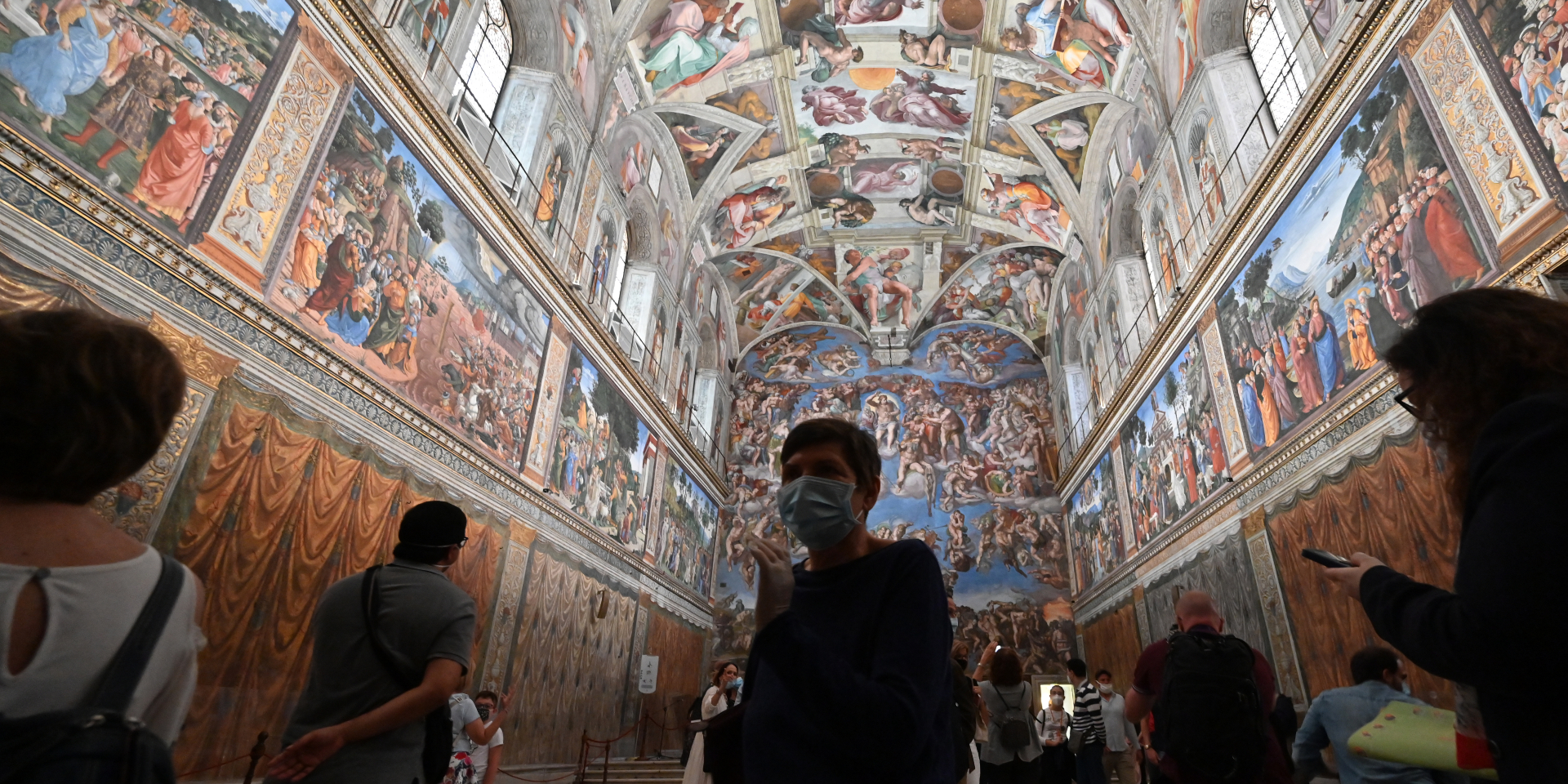While the entire country is under a nighttime curfew and some areas still face very strict restrictions, the Vatican Museum will reopen from Monday.
The visits will nevertheless be very supervised, as visitors are obliged to book their tickets in advance.
The Vatican Museums, which include the famous Sistine Chapel, announced their reopening on Saturday from Monday, after being closed for 88 days due to restrictions linked to the pandemic.
This is the longest closure since World War II.
The collections will be on view Monday through Saturday, but visitors will need to pre-book their tickets and be assigned time slots.
>> LIVE
- Coronavirus: follow the evolution of the situation Saturday, January 30
The Tories took advantage of the shutdown, imposed as part of measures taken by the Italian government to stem the spread of the coronavirus, to carry out maintenance and restoration work.
In particular, the dusting of the 15th century frescoes adorning the side walls of the Sistine Chapel, a museum jewel that attracts some six million visitors per year, was carried out.
"The Pope's museums await you with pleasure," the museums announced in a statement.
Relaxation of restrictions
The announcement follows Italy's announcement of an easing of restrictions related to Covid-19, with all regions of the country except five having been placed in the "yellow", low-risk category from Monday.
This allows bars and restaurants to reopen during the day, as well as museums.
The Colosseum and Forum in Rome are also set to reopen on Monday, but both sites will remain closed on weekends.
>> TO LISTEN
- Coronavirus: the delicate financial situation of the Vatican
Sicily and Sardinia, the regions of Umbria (center), Puglia (south) and the autonomous province of Bolzano (north) are the only regions subject from Monday to stricter restrictions, materialized by "orange zones" "at medium risk.
The entire peninsula, however, remains affected by a nighttime curfew, while table service in bars and restaurants must end at 6 p.m.
Italy was the first European country to face the pandemic at the start of 2020. National lockdown, the collapse of tourism-related trade and widespread closures have since plunged the euro area's third-largest economy in a deep recession, as nearly 88,000 people died from the virus.

